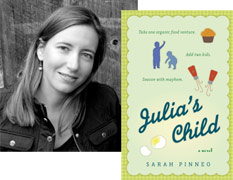Last year I read 40 recently published contemporary YA titles, because I wanted to really understand where the market was headed. And a great many themes and conventions revealed themselves to me. Now, rules are made to be broken, right? However, a unique, groundbreaking book would still probably tick off a few of these observations, while deviating in some fascinating way on one or two points.
So here goes:
1. First person, baby
More than 90% of the books I read last year were in either first person past tense or first person present tense. To my ear, the first person present tense has a breathless quality which feels younger and slightly less literary than past tense. But both forms have a personal, confessional tone which works well for teen voices.
Exceptions to this rule tended to be extraordinary. David Levithan's "Greek chorus" voice for Two Boys Kissing broke my heart from page one. And Rainbow Rowell's (very close) third person for FanGirl was mindblowingly skillful.
I only found a couple of titles with alternating first person points of view, and always in romance titles. Katie McGarry's Pushing the Limits series and books by Simone Elkeles did this.
2. MCs Between 15 and 18. Mostly.
It's possible to write YA about younger characters, but the stakes have to be pretty high for a teen to read about a person younger than themselves. (Patricia McCormick's SOLD is one brilliant example. The 13yo main character is sold into sex slavery.)
In the other direction, there is a definite trend toward YA books which follow their narrators into the summer after high school graduation, or off to college. Sarah Dessen, Gayle Forman, Rainbow Rowell, Sara Zarr and Lauren Myracle all recently published books with off-to-college narrators.
3. Not Too Short, Not Too Long
While fantasy novels, with all that world building, can be really fat, contemporary YA has historically topped out before 80,000 words. But if I were to pick a trend, I'd say the trend is toward more variation. I read 55,000 word books and 107,000 word books last year. Using www.arbookfind.com, I averaged all the ones I'd read which appeared in their database. My (not very) scientific result was a 77,000 mean.
4. Girl Power
Although I read some great boy voices, (Living With Jackie Chan, The Beginning of Everything, Reality Boy) girls are still the most frequent YA narrators. This is probably because girls are the biggest demographic reading YA novels.
5. No Topic Too Taboo
There is almost no subject matter which is wholly inappropriate for YA. I read books about rape, AIDS, drugs, oppression, sex, pregnancy, mental illness, abuse and sociopathic family members. And death. Lots of death.
So it's all on the table, and usually each difficult topic is handled with the weight it deserves. In fact, I read some moving, redemptive books about difficult subjects this past year, the sort that made me want to push them into the hands of everyone I knew. Colleen Clayton's What Happens Next counters a nasty rape with compassion and triumph. The gorgeous Personal Effects by E.M. Kokie is about death, abuse, war, loyalty and bigotry.
That said, I read a few titles where the handling of taboos felt a bit uneven, and left me scratching my head. One book had its characters smoking pot all the way through the book, from page one, but was much less comfortable addressing the sex its characters were probably having. And one book took on a dysfunctional family with grace and power, but didn't remark at all as its 16yo main character had an overtly sexual relationship with her 22yo boyfriend.
In fact, of all the taboos these books covered, sex and drinking were the two which authors and editors seemed to feel most fickle about. Sometimes they were handled with grace and gravity. Sometimes they were the entire subject of the book. But in other titles, they were excepted as normal and inevitable teenage behavior.
Of course, all fiction chooses its battles. But in a YA book, meant to be read by minors, uneven treatments jump out at me more frequently.
6. Drama!
It probably goes without saying, but there are no quiet, dainty little YA novels. And maybe that's why I like them so well. They are never, ever dull. To all that drama and teen angst, I say, "bring it!"

Sarah Pinneo is a novelist and food writer. Her most recent book is Julia’s Child. Follow her on twitter at @SarahPinneo.

2 comments:
Ninety percent in first person? NINETY???
Time to do something different... like break the barrier and write a smashing SECOND person novel...
Mirka--yes. In fact Julie Berry's ALL THE TRUTH THAT'S IN ME does this well. (That historical was not counted in my analysis here, though.)
Post a Comment